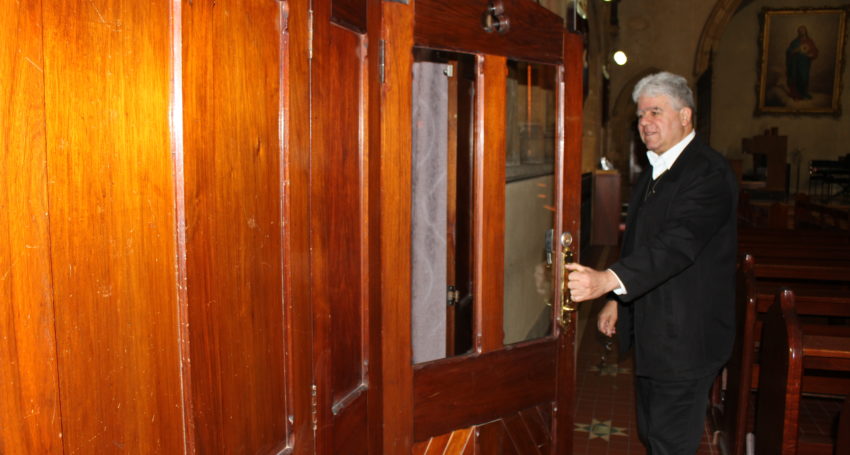Why the seal of confession matters to Catholics
Opinion
While it is certainly true that most Catholics do not receive the sacrament of Reconciliation nearly as often as they did in the middle of the 20th century, I think that the sacrament still matters to them.

It represents the real possibility of facing up to an aspect of one’s life, or perhaps to the totality of one’s life, and recognising the truth of one’s existence, including lovelessness and sin. The sacrament is there as an ongoing invitation to bring one’s true self to an encounter with the risen Christ, to find in Him abundant mercy and forgiveness, and ultimately peace of mind and heart; it is an offer of the grace to turn one’s life around, so as to live more fully the loving life of a committed disciple of Jesus. This is a precious part of the enduring Catholic heritage.
Advertisement
The form that this sacrament takes has changed over the centuries and no doubt it will change again. For the first six centuries, this sacrament had the form of a public act, reconciling those who had committed public sins, welcoming them back into the community of the Church. In the following centuries a private form of the sacrament began to develop in the life of the Church as part of a person’s spiritual journey.
It was soon recognised that this individual form of the sacrament required secrecy on the part of the priest (the ‘seal’ of confession). We have records of Church law concerning the secrecy of the sacrament as far back as the 9th century, and the seal of confession was fully incorporated into canon law and Church teaching of the medieval period. This long tradition remains a fundamental part of Church law with regard to the sacraments: the revised Code of Canon Law calls the seal of confession ‘inviolable’ (canon 1388), and states that the penalty for breaking the seal is automatic excommunication, which only the pope can remove. The priest is bound by the gravest obligation not to violate the seal by word or in any other manner, and for any reason (canon 983:1). This has meant that over the centuries priests have died rather than break the seal.
Why does it matter so much? The seal is not for the sake of the priest, but to protect the integrity of the persons who come to the sacrament. They have come to a holy place, a God-place. They have come as part of their own interior spiritual journey, moved by the Holy Spirit. They are free to lay bare what is in their hearts, to entrust it to the risen Christ who meets them in this sacrament, in and through the ministry of the priest of the Church. But this sacrament is not a free pass. The experience of encountering the love of Christ demands not just true sorrow for one’s sin, but also, with God’s help, a true willingness to change one’s behaviour, to turn one’s life around, sometimes radically. Part of what the priest does within the confidentiality of this sacrament is to make clear that true sorrow for sin demands being prepared to change the way one acts.
Advertisement
Those who come to the sacrament do so in absolute trust in the confidentiality of the sacrament. In this context they can speak about their lives in a deeply personal way. They can name their own interior struggles. They are free to speak the truth of their lives in a context of radical confidentiality, and in so doing, to seek forgiveness and peace in God. The seal of confession is a structure that guarantees that they can speak of their spiritual journey in the holy place of this sacrament with a deep and strong trust.
Fr Denis Edwards is a Professional Fellow in Theology at the Australian Catholic University, Adelaide Campus.







Comments
Show comments Hide comments